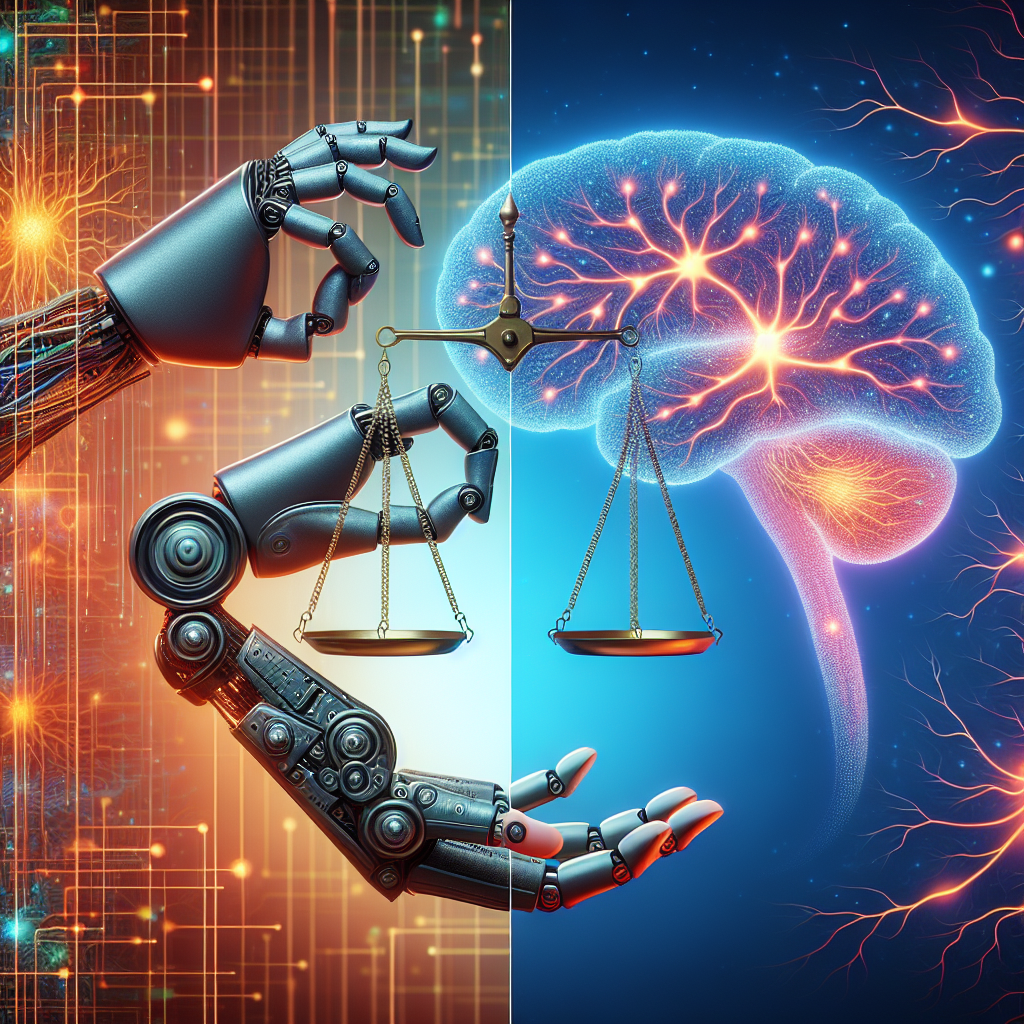The Ethics of AGI: Addressing Concerns and Promoting Responsible AI
Artificial General Intelligence (AGI) is a topic that has been gaining significant attention in recent years. AGI refers to a type of artificial intelligence that possesses the ability to understand and learn any intellectual task that a human being can. This has raised numerous ethical concerns about the potential impact of AGI on society, the economy, and even humanity itself. In this article, we will explore some of the key ethical considerations surrounding AGI and discuss ways to address these concerns and promote responsible AI development.
Ethical Concerns Surrounding AGI
One of the primary ethical concerns surrounding AGI is the potential impact on the job market. As AGI becomes more advanced, there is a fear that it could lead to widespread automation of jobs, resulting in mass unemployment. This could have significant social and economic consequences, particularly for those in low-skilled or routine jobs.
Another ethical concern is the potential for bias in AGI systems. AI systems are only as good as the data they are trained on, and if this data is biased or flawed in some way, it can lead to biased outcomes. This has already been seen in numerous AI applications, such as facial recognition software that has been shown to have higher error rates for people of color. As AGI becomes more advanced, it is crucial to address these biases to ensure fair and equitable outcomes.
Privacy is another major ethical concern when it comes to AGI. As AI systems become more sophisticated, they have the potential to collect and analyze vast amounts of personal data. This raises concerns about data security and the potential for this information to be misused or exploited. It is essential to have robust privacy protections in place to safeguard individuals’ personal information.
Finally, there are concerns about the potential for AGI to surpass human intelligence and pose a threat to humanity. This concept, known as the “singularity,” raises questions about whether AGI will ultimately be beneficial or harmful to society. There is a fear that AGI could become uncontrollable or act in ways that are harmful to humans. It is crucial to address these concerns and ensure that AGI is developed in a safe and responsible manner.
Addressing Ethical Concerns and Promoting Responsible AI
To address the ethical concerns surrounding AGI, it is essential to have a robust framework in place to guide AI development. This includes clear guidelines and regulations to ensure that AI systems are developed and deployed responsibly. It is crucial to involve a diverse range of stakeholders in the development process, including ethicists, policymakers, and members of the public, to ensure that AI systems are designed with ethical considerations in mind.
Transparency is also key to promoting responsible AI development. AI systems should be designed in a way that is transparent and explainable, so that users can understand how they work and why they make certain decisions. This can help to build trust in AI systems and ensure that they are used in a fair and ethical manner.
Another way to address ethical concerns surrounding AGI is to prioritize diversity and inclusion in AI development. This includes ensuring that AI systems are designed to be inclusive and accessible to all individuals, regardless of their background or identity. By prioritizing diversity in AI development, we can help to mitigate bias and ensure that AI systems are fair and equitable for all users.
Education and awareness are also essential when it comes to promoting responsible AI development. It is crucial to educate the public about the potential impacts of AGI and the ethical considerations surrounding AI development. By raising awareness about these issues, we can help to ensure that AI is developed in a way that benefits society as a whole.
FAQs
Q: What is AGI, and how does it differ from other types of artificial intelligence?
A: AGI refers to artificial intelligence that possesses the ability to understand and learn any intellectual task that a human being can. This differs from other types of AI, such as narrow AI, which are designed to perform specific tasks or functions.
Q: What are some of the ethical concerns surrounding AGI?
A: Some of the primary ethical concerns surrounding AGI include the potential impact on the job market, bias in AI systems, privacy concerns, and the potential for AGI to surpass human intelligence and pose a threat to humanity.
Q: How can we address ethical concerns surrounding AGI?
A: To address ethical concerns surrounding AGI, it is essential to have a robust framework in place to guide AI development. This includes clear guidelines and regulations, transparency in AI systems, diversity and inclusion in AI development, and education and awareness about the potential impacts of AGI.
Q: What are some ways to promote responsible AI development?
A: Some ways to promote responsible AI development include prioritizing diversity and inclusion in AI development, ensuring transparency and explainability in AI systems, involving a diverse range of stakeholders in the development process, and educating the public about the ethical considerations surrounding AI development.

